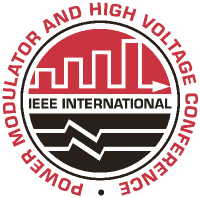Speaker
Prof.
Xingming Bian
(North China Electric Power University)
Description
In recent years, with the deterioration of nature climatic, haze occurred frequently in Beiijng, China, especially in spring and winter seasons. During haze weather, the concentration of airborne particulate matter will turn higher, and it may have significant effects on high voltage power systems.
When the electric field intensity on the surface of the HVDC conductors exceeds a critical value, corona discharges and produces a large number of ions. If airborne particulate matter, exist at this time in the vicinity of HVDC conductors, ions would adhere to these particulate matter, becoming charged particles, suspending in air and affecting the ionized field of the conductors.
In order to investigate the impact of airborne particulate matter concentration on ionized field of HVDC power lines, a simulated overhead transmission line was constructed outdoor near our laboratory. During March to May (spring season in Beijing), the negative dc experiments were carried out in fine and haze weather for several times. The concentration of airborne particulate matter was monitored by laser dust monitors LD-5C (B), which was in the range 20μg/m3 to 400μg/m3. The components and particle size of the collected airborne particulate matter sample were studied by means of scanning electron microscope (SEM) and energy dispersive X-Ray Spectroscopy (EDX). The state of corona discharge was observed by an ultra violet (UV) imaging detector, therefore, the corona inception voltages could be obtained. The negative DC ground synthetic electric field was measured by three filed mills.
Through a large number of observations and measurements, it is found that the airborne particulate matter has little effect on negative dc ground synthetic electric field before corona discharge occurred; however, the negative dc ground synthetic electric field became higher with the increase of the concentration of airborne particulate matter when the applied voltage exceeded corona inception voltage.
Primary author
Dr
Xu Zhuansun
(Shaanxi Electric Power Company Postdoctoral Scientific Research Station)
Co-authors
Ms
Lin Liu
(North China Electric Power University)
Mr
Naiyong Wang
(Shaanxi Electric Power Company Postdoctoral Scientific Research Station)
Prof.
Qing Xie
(North China Electric Power University)
Mr
Xiang Li
(State Grid Beijing Electric Power Company)
Prof.
Xingming Bian
(North China Electric Power University)
Mr
Zhilong Zou
(North China Electric Power University)
